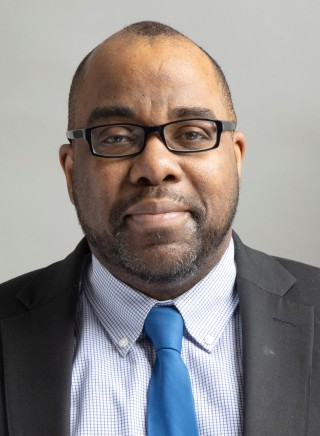Vickroy: Juneteenth is not ‘Black’ history, it’s American History & We Need to Know Why It’s So Important
 Dr. Lionel Kimble, Professor in CSU's History Department, comments on the importance
of recognizing Juneteenth.
Dr. Lionel Kimble, Professor in CSU's History Department, comments on the importance
of recognizing Juneteenth.
In 1852, former slave Frederick Douglass gave a speech in New York entitled, “The Meaning of July Fourth for the Negro.”
For millions of Americans, July Fourth symbolizes freedom, the day the nation said enough with British tyranny and declared itself independent. A new way of life, rich with individual rights and freedoms, had begun.
But that didn’t apply to the millions of Black Americans who were enslaved across the new land, and who would continue to be enslaved or indentured or oppressed for decades to come.
It is a sad fact that as white Americans were celebrating their freedom back in 1776, many were at the same time denying those same rights to their Black counterparts.
It is another sad fact that while the Emancipation Proclamation may have declared that all slaves be freed, the ability to enforce and communicate that command was slow to reach all of the people to whom it applied.
Part of the reason was that there was a war going on in 1863 and the federal government didn’t have jurisdiction over the South. In addition, avenues of communication were slow and easily manipulated to keep pertinent news from the very people it benefitted.
Still, at last, on June 19, 1865, Union Gen. Gordon Granger arrived in the last slavery holdout, Galveston, Texas, and informed enslaved people that the war was over and they were free.
Since that day, across Texas and in many parts of the country Juneteenth has been celebrated as Black Independence Day, said Lionel Kimble, associate professor of history at Chicago State University.
The celebrations often went unnoticed by many white Americans.
Kimble said it has been celebrated in African American communities across the country since 1865. He remembers picnics and celebrations at Jesse Owens Park in Chicago while he was growing up in the 1980s.
Still, when President Biden signed a bill recognizing Juneteenth as a federal holiday, many had to admit they’d never heard of it.
“It’s not just white people who didn’t know about it,” Kimble said. “There are some Black people who didn’t know about it as well.”
That, he said, is a reflection of the way we teach and learn history in this country. Many ethnic groups have had to rely on family storytelling to keep their native or ancestral history alive because their stories were never included in school textbooks.
“We all know there are several reasons — political and editorial or whatever — that certain things don’t make it into the history books. It’s a fundamental problem how we teach slavery and reconstruction in the United States,” he said.
“Our (national) inability to deal with the racial pain of enslavement has kept us from even talking about it,” he said.
For a long time people didn’t talk about Juneteenth because it meant recognizing slavery and “we don’t want to talk about slavery,” Kimble said.
But we should. Because it happened. Discussion is good, he said, even if it makes people feel bad or inferior. History should not simply be swept under the rug or rewritten to make specific populations feel better about themselves, he said.
He quotes a friend who calls America “a history wasteland.”
“We throw away history. We don’t study it, We don’t appreciate it. And we fictionalize it. We mythicize our past to the point that the truth gets lost,” he said.
“But there are lessons in pain. I don’t think there’s any other racial group globally who gets told to forget their pain, to forget their history. We don’t tell people to forget about 9/11,” he said.
“As we approach the Fourth of July and we have these conversations about freedom and democracy, (Juneteenth) is an excellent opportunity to talk about the diversity of what freedom and democracy means to us. Across our history, various people have been trying to understand what America means.
Juneteenth is the day Black people learned of their freedom. It meant the end of slavery, the end of the Civil War, he said.
At last, he said, “Black people were able to celebrate their humanity because slavery was something that stripped people’s humanity away.”
This year, Juneteenth — a blending of words much like hangry and brunch — coincides with Father’s Day, which Kimble said is symbolic.
“Slavery destroyed a lot of families and after Juneteenth, Black people did a lot of work to find their wives and children and brothers and sisters, and reconnect,” he said. “So looking at the spirit of Father’s Day and thinking about the long history of Black families and Black fathers and their quest to solidify their families, I think it’s very appropriate.”
In addition, he said, Father’s Day has traditionally been a day to barbecue and picnic.
“It’s very appropriate that Juneteenth, one of the oldest outdoor celebrations in America, coincides with it. It’s a day for families to go outside and appreciate what it means to be here, to be together.”
Donna Vickroy is an award-winning reporter, editor and columnist who worked for the Daily Southtown for 38 years.
More information here

 All Rights Reserved
All Rights Reserved